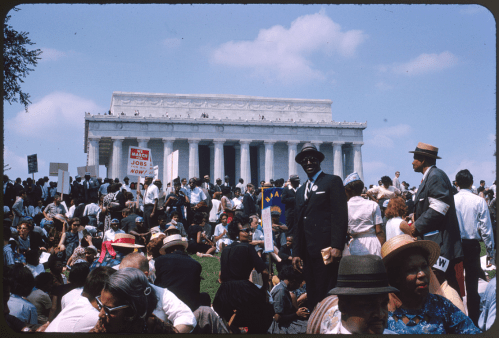Well, we are back to an operating (but not necessarily operational) federal government. Many believe the government shutdown sealed immigration reform’s fate, but there are a few, especially advocates and the White House, who still believe there is a chance for reform this year.
While Congress drags its feet on immigration reform, states and localities continue to address the opportunities and challenges of newcomers in their communities. For immigration-related matters, these policy changes can be welcoming or exclusionary.
On the exclusionary front, restrictions on voter registration and identification at polling places reach beyond immigrants, but can often target immigrants. Following last summer’s Supreme Court ruling over Arizona’s voter registration laws, Kansas and Arizona have taken steps to restrict those voting in state and local elections. Additionally, Florida is in the process of “remov[ing] noncitizens from voter rolls” by cross-checking citizenship status with Department of Homeland Security data.
As the Texas races for governor and lieutenant governor heat up, Republican candidates are attempting to balance their stance on immigration issues, especially in-state tuition for undocumented students.
In Montana, issues surrounding racial profiling of Latino drivers are simmering.
But there is a larger group of inclusive policies afoot suggesting a desire to address immigration as it plays out in communities around the country—California’s bevy of immigration-related legislation, including limiting local law enforcement’s role in deportation proceedings and expanding driver’s licenses for the unauthorized and their ability to practice law, passed earlier this month serves as a primary example.
The Louisiana Supreme Court recently decriminalized driving without “proof of [their] immigration status” for noncitizens. In Oregon, the 2014 election will host a referendum on driver’s licenses for unauthorized immigrants and New Jersey Governor Chris Christie took a stand in support of in-state tuition for unauthorized college students.
In Wisconsin, Governor Scott Walker wants to open a Mexican consulate that will serve its growing immigrant community. Elected officials and business leaders in metropolitan Atlanta will gather to discuss how “harnessing and investing in its immigrant community” contributes to economic competitiveness. Following a recent high-profile New York Times article, the Welcome Dayton program continued its media tour to The Daily Show.
Moving forward, while this blog will still keep an eye on major federal developments, we will incorporate much more of what is actually happening on the ground as a response to immigration.


Commentary
This Week in Immigration Reform: State and Local Edition
October 21, 2013